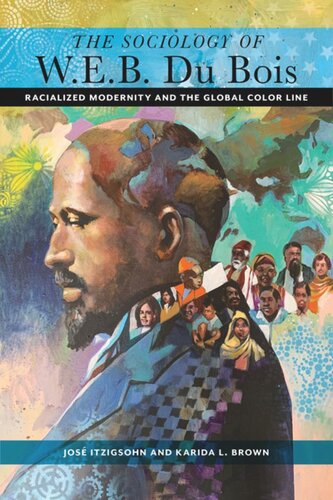

Most ebook files are in PDF format, so you can easily read them using various software such as Foxit Reader or directly on the Google Chrome browser.
Some ebook files are released by publishers in other formats such as .awz, .mobi, .epub, .fb2, etc. You may need to install specific software to read these formats on mobile/PC, such as Calibre.
Please read the tutorial at this link: https://ebookbell.com/faq
We offer FREE conversion to the popular formats you request; however, this may take some time. Therefore, right after payment, please email us, and we will try to provide the service as quickly as possible.
For some exceptional file formats or broken links (if any), please refrain from opening any disputes. Instead, email us first, and we will try to assist within a maximum of 6 hours.
EbookBell Team

0.0
0 reviewsThe first comprehensive understanding of Du Bois for social scientists
The Sociology of W. E. B. Du Bois provides a comprehensive introduction to the founding father of American sociological thought. Du Bois is now recognized as a pioneer of American scientific sociology and as someone who made foundational contributions to the sociology of race and to urban and community sociology. However, in this authoritative volume, noted scholars José Itzigsohn and Karida L. Brown provide a groundbreaking account of Du Bois’s theoretical contribution to sociology, or what they call the analysis of “racialized modernity.” Further, they examine the implications of developing a Du Boisian sociology for the practice of the discipline today.
The full canon of Du Bois’s sociological works spans a lifetime of over ninety years in which his ideas evolved over much of the twentieth century. This broader and more systematic account of Du Bois’s contribution to sociology explores how his theories changed, evolved, and even developed to contradict earlier ideas. Careful parsing of seminal works provides a much needed overview for students and scholars looking to gain a better grasp of the ideas of Du Bois, in particular his understanding of racialized subjectivity, racialized social systems, and his scientific sociology. Further, the authors show that a Du Boisian sociology provides a robust analytical framework for the multilevel examination of individual-level processes—such as the formation of the self—and macro processes—such as group formation and mobilization or the structures of modernity—key concepts for a basic understanding of sociology.